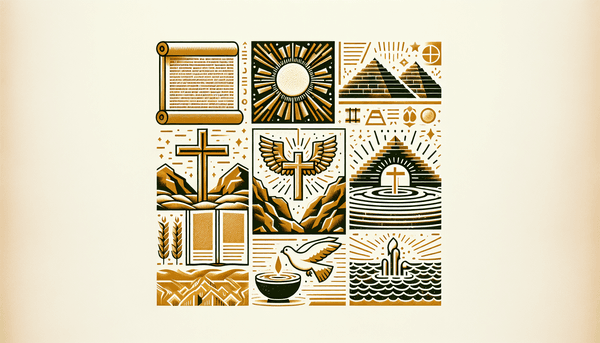The Birthplace of King David
The story of David begins in the small town of Bethlehem, where the prophet Samuel anoints him, the youngest son of Jesse, to be the future king of Israel (1 Samuel 16:1-13). This pastoral setting is not merely a geographical detail but a cornerstone in the fulfillment of messianic prophecies, foreshadowing the birth of Jesus in the same town as foretold in Micah 5:2. David's rise from shepherd to monarch symbolizes a divine tapestry woven through generations, as seen in his genealogy leading to Christ (Matthew 1:1). Bethlehem's significance extends beyond its soil, shaping the spiritual landscape as a birthplace of kings and a beacon of hope.
Sin, Repentance, and Forgiveness
The journey of faith is marked by moments of stumbling and restoration. The Bible encourages a continual return to repentance, highlighting that even after we have repented, if we sin, we are to seek God's forgiveness anew. The first epistle of John assures us that if anyone sins, we have an advocate with the Father, Jesus Christ the righteous (1 John 2:1). This unending grace is echoed in the teachings of Jesus, who instructs us to ask for daily forgiveness in the Lord's Prayer (Matthew 6:12), and reminds us that our Heavenly Father's mercy is without limit, as illustrated in the Parable of the Prodigal Son (Luke 15:11-32). The Christian life is thus a tapestry of redemption, woven with threads of repentance and the steadfast love of a forgiving God.
Denominational Teachings and Unity in the Faith
In a world where denominational lines often divide, the Bible calls for a unity that transcends doctrinal differences. The apostle Paul's plea for believers to speak the same thing and avoid divisions (1 Corinthians 1:10) remains a poignant reminder for the church today. This unity is further emphasized in Paul's letter to the Ephesians, urging us to uphold one body, one Spirit, one hope, one Lord, one faith, one baptism, and one God and Father of all (Ephesians 4:4-6). The Bereans serve as a model for modern Christians, examining teachings against scripture to ensure alignment with divine truth (Acts 17:11). In the pursuit of unity, the Holy Spirit guides us in wisdom (James 1:5), leading us to discern and embrace the core truths of our faith.
The Assurance of Salvation and the Holy Spirit
The Holy Spirit plays a pivotal role in the believer's life, serving as a seal of our salvation (Ephesians 1:13-14) and providing an inner witness to our adoption as children of God (Romans 8:16). This assurance is a living testimony of God's promise, a transformative power that dwells within us, manifesting through the fruits of the Spirit (Galatians 5:22-23). As we navigate the complexities of faith and confront our failures, the indwelling Spirit serves as a constant reminder of our secured inheritance and the unshakeable hope we have in Christ.
Conclusion
Through our journey across the biblical landscape, we've encountered the rich heritage of King David, the merciful process of repentance, the pursuit of unity within Christian diversity, and the comforting role of the Holy Spirit as the guarantor of our salvation. These threads, woven together, create a tapestry that captures the essence of the Christian faith—a picture of redemption, growth, and hope. As we continue to navigate our own spiritual paths, may we draw strength from the biblical truths that have guided generations before us and find reassurance in the constant presence of God's grace and love. For additional insights on leading a life aligned with Christian values, consider exploring our other blog post that delves into the biblical perspective on equality, discipline, and the pursuit of God.
FAQ
Q: Where was King David born according to the Bible?
A: King David was born in Bethlehem, as mentioned in the Bible in the book of 1 Samuel 16:1-13.
Q: If you sin after repenting, what does the Bible suggest you do?
A: The Bible encourages believers to repent again and seek God's forgiveness, emphasizing that Jesus Christ advocates on our behalf for continual forgiveness (1 John 2:1).
Q: Does the Bible support the concept of denominations?
A: The Bible does not specifically address denominations as they are today but emphasizes unity in the body of Christ and the importance of sound doctrine (1 Corinthians 1:10, Ephesians 4:4-6).
Q: Will God still forgive me if I fail Him multiple times?
A: Yes, according to the Bible, God offers forgiveness to those who repent of their sins repeatedly, showcasing His mercy and grace (1 John 1:9).






